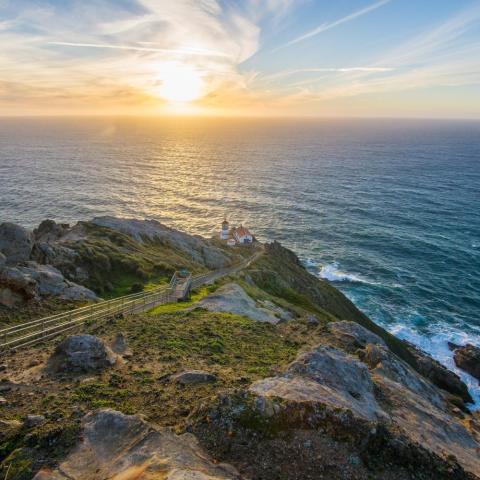
Olympic National Park is offering free boat cleaning systems in a bid to keep invasive aquatic species out of park waters/NPS file
Olympic National Park in Washington state is launching an aquatic invasive species program to protect Lake Crescent and Lake Ozette. The program will leverage free boat cleaning stations, public outreach, partnerships, and environmental DNA sampling to reduce spread of existing invasive species and prevent the introduction of new invasive species.
Two aquatic invasive species were detected in Lake Crescent, in 2019 and 2022: New Zealand mudsnails (Potamopyrgus antipodarum) and Asian clams (Corbicula fluminea). Asian clams were identified in Lake Ozette in 2018. Both Asian clams and New Zealand mudsnails are known for reproducing rapidly and spreading quickly, with Asian clams sometimes exceeding 20,000 individuals per square meter.
These invasive species harm native ecosystems, a park release said. They disrupt ecological processes, outcompete native species, and can impair recreation and visitation in parks. Prevention and public education are the keys to reducing the spread of invasive species. Once these species are established, they are exceedingly difficult, if not impossible, to remove.
To prevent the spread of invasive species to other areas, recreational boaters are encouraged to use free cleaning stations at Lake Ozette and the Fairholme, Storm King, and Log Cabin Resort boat launch stations on Lake Crescent. The stations were deployed on Wednesday at Lake Crescent and will be next week at Lake Ozette.
Asian clams and New Zealand mudsnails were likely introduced into Lake Crescent by “hitchhiking” on recreational boats. Recreational boaters often unknowingly transport these species when they visit multiple freshwater areas without cleaning, draining, and drying their boats. Cleaning boats will also prevent the introduction species such as zebra mussels, quagga mussels, and Eurasian watermilfoil (present in Lake Sutherland). These species have costly economic impacts for both waterfront property owners and boaters because they clog water intake systems, wells, pumps, and boat motors. They also damage the aesthetic and recreational value of waterfront property, beaches, and swimming areas.
Prevention is the best way to stop aquatic invasive species. Effective boat cleaning can be accomplished in three steps:
· CLEAN: Remove all plants, mud, animals, and organic matter from your watercraft, trailer, waders, boots, and nets before entering the water.
· DRAIN: Pull bilge plug and remove standing water, discarding water on dry ground where it cannot enter lakes or streams.
· DRY: Completely dry everything that comes in contact with water, including your watercraft, before entering another body of water.
Boat cleaning stations should be used before and after boating. All watercraft, including boats, kayaks, rafts, stand-up paddleboards, and other flotation devices should be cleaned. To learn more about how to prevent invasive species, visit: go.nps.gov/protect-our-waters.




 Support Essential Coverage of Essential Places
Support Essential Coverage of Essential Places







Comments
Yet the peasants have to pay to shower.
I guess the NPS has money to burn for the wealthy that can own and operate boats in National Parks.
The war on the poor continues.